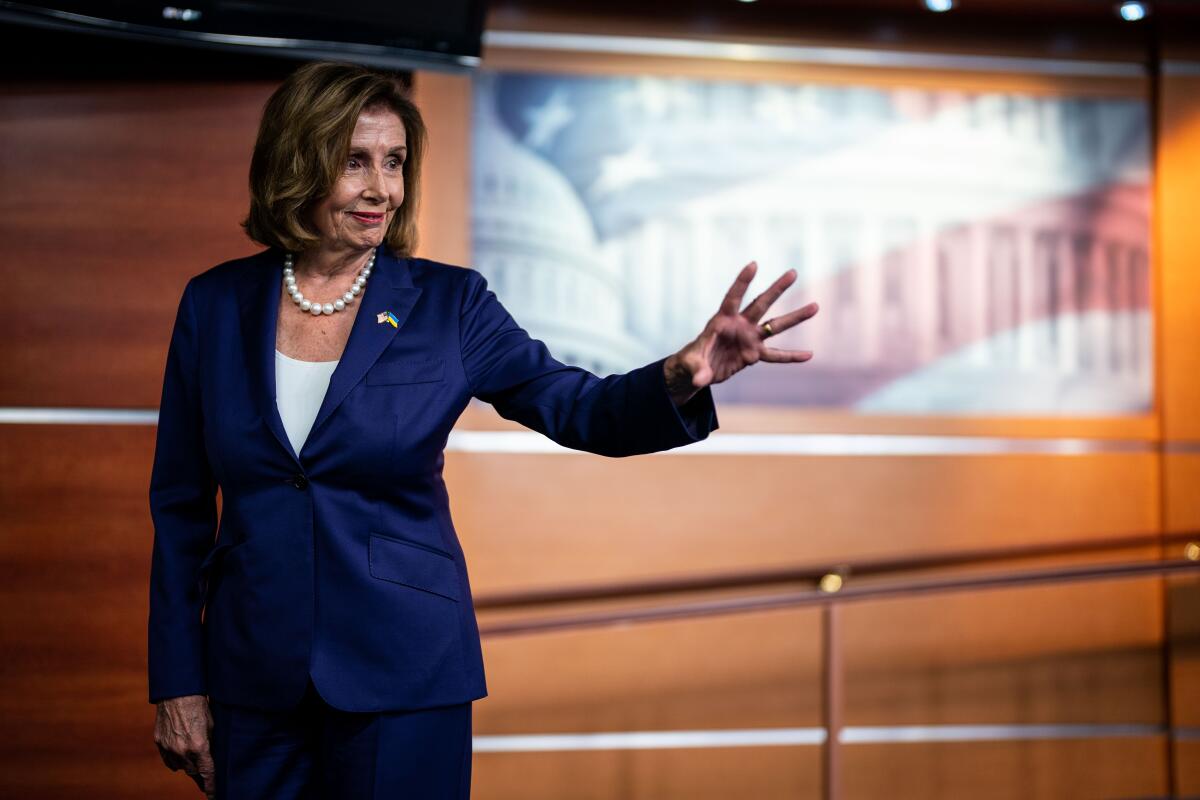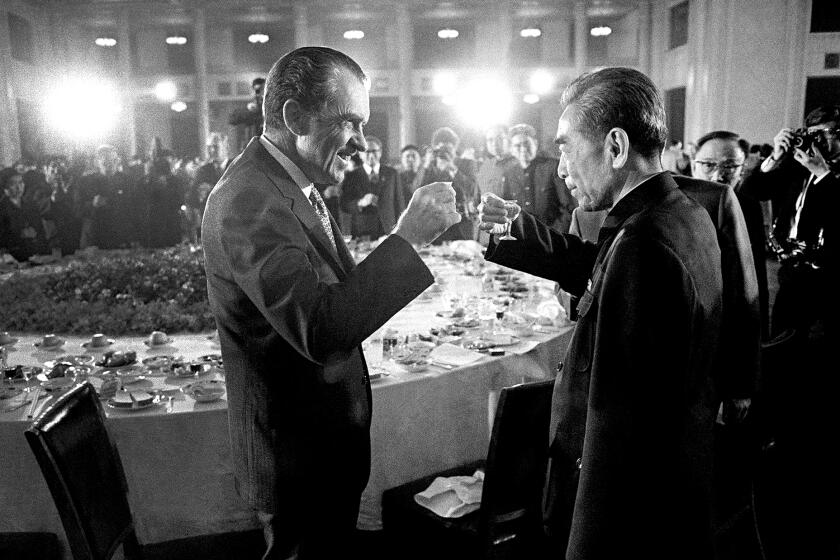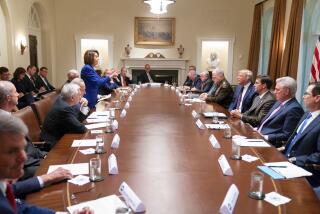Op-Ed: Why Nancy Pelosi’s possible Taiwan visit could be a problem — for Taiwan

A potential visit to Taiwan next month by House Speaker Nancy Pelosi holds the potential to ignite a regional — or perhaps even global — conflict. America’s support for Taiwan — a territory considered by China as a “breakaway province”— has always been the most contentious issue in U.S.-China relations. This support has grown in recent years and Chinese President Xi Jinping warned President Biden on Thursday that the U.S. is now playing with fire. Even just the suggestion of a visit from Pelosi has become a problem. The two principal parties involved appear to have each painted themselves into a corner — neither the U.S. nor China has much room to maneuver.
Pelosi (D-San Francisco), who has a long history of overt hostility toward China, has yet to decide whether she will make her trip to Taiwan. She claims a visit would demonstrate American support for the island. An earlier trip to Asia that might have included a visit to Taiwan was postponed after Pelosi tested positive for the coronavirus. If she cancels the trip tentatively planned for August, some analysts fear that Beijing will view Washington as a paper tiger — outwardly powerful but ineffectual in reality — and become more belligerent and confrontational toward the U.S. and its allies in the western Pacific as a result.
Moreover, Democrats would run the very real risk of being branded by opposition politicians as “soft on Communist China” in the run-up to November’s critical midterm elections. This might help explain why an increasing number of Republicans are calling for Pelosi not to cave in to White House requests to revise her plans.
Russia’s attack on Ukraine shows there cannot be any room for doubt concerning the defense of Taiwan.
Having already voiced disapproval over a possible Pelosi visit to Taiwan, China’s president is facing his own set of domestic and international political considerations. China’s leaders and the Chinese public will likely view anything other than continued opposition to the trip as a national humiliation — yet another instance in the nation’s long history of caving in to foreign bullying. There is also widespread fear that any retreat from China’s recent declarations would embolden anti-China politicians in Taiwan as well as overseas. All of this comes as China’s Communist Party gears up for its most important political event in a decade — the 20th National Congress that will be held in the fall. The outcome of the meeting will likely determine the nation’s trajectory for years to come and whether Xi (as widely anticipated) will be selected for another five-year term as party leader. Caving in to this instance of American “interference” in Taiwan might cast a shadow over this event.
It is difficult to understand how a Pelosi trip would help Taiwan. If the dispute over Pelosi’s travel plans spirals out of control, the biggest loser will be Taiwan. Some might hope that a crisis over Pelosi’s visit will generate sympathy and support for the island while demonstrating American strength and resolve, but Taiwan will find itself on the front lines in any conflict.
The country’s economy relies on China, its largest trading partner. Perhaps most worrisome, Beijing has never renounced the use of force to retake Taiwan, which lies just off the coast of the Chinese mainland, and Taiwan’s military is woefully unprepared for any possible war with China should things escalate now or in the future. There are serious doubts as to whether the U.S. — Taiwan’s only potential security partner — can successfully protect the island should that occur, according to a recent Brookings Institute study.
Nixon and Kissinger gave away more than they needed to in pursuit of China’s help ending the Vietnam War.
But Taiwan might also hold the key to a peaceful resolution to this complicated quarrel. Using quiet diplomacy, Washington should ask Tsai Ing-wen, Taiwan’s leader, for some assistance. Namely, it would be helpful if Taipei announces that, while Pelosi’s expressed interest in visiting Taiwan is flattering, it would not be convenient for her to visit the island at this time, allowing Pelosi to postpone her visit yet again without appearing to back down due to pressure from the White House or China.
Tsai might also stress that Taipei hopes to serve as a regional peacemaker and not a troublemaker or flashpoint for conflict — which even the possibility of a visit from Pelosi has ignited. All parties involved would likely appreciate such a statement because it could help stabilize and de-escalate the situation. An approach like this might lead to a “win-win-win” outcome for all three governments — and that certainly makes it worth the effort.
Dennis V. Hickey is distinguished professor emeritus in the department of political science at Missouri State University. He is the author of numerous books and articles on Taiwan and the Chinese mainland.
More to Read
A cure for the common opinion
Get thought-provoking perspectives with our weekly newsletter.
You may occasionally receive promotional content from the Los Angeles Times.












